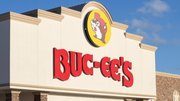Article
Commentary: Paying attention to the Retail Rule of Six
Loyal customers are six times more likely to rebuff competitive offers, especially price-based offers.

July 19, 2012
By Robert Passikoff, president, Brand Keys
U.S. retail sales have declined for three straight months, and, as anyone who took Econ 101 knows, weak employment numbers buttress weak spending, Despite lower gas prices, unemployment doesn't help. Even for those with jobs, marketplace despair and ennui seems to be sapping consumer confidence.
This is the longest losing streak since 2008, when the economy imploded. That experience did, however, teach companies to introduce tighter inventory controls, so retailers are likely to cut back on orders to keep inventory, consumer spending, and their bottom lines in some sort of sync.
Smart brands continue to build engagement and loyalty between their consumers. And, while loyalty and real engagement are leading indicators of profitability, they are not, unfortunately, a guarantee of overall economic consumer confidence.
But loyalty is better than no loyalty and is almost always a guarantee that you won't have to market your goods on price and promotions alone. Even in a bad economy, the "Rule of Six" kicks in, to wit: loyal customers are six times more likely to rebuff competitive offers, especially price-based offers.
According to consumers, via the Brand Keys Customer Loyalty Engagement Index, here's how department store brands currently rank when it comes to loyalty and engagement, which matches up pretty well when it comes to profits:
1. T.J. Maxx
2. Marshall's
3. Macy's
4. Dillard's
5. Kohl's
6. Sears
7. JCPenney
The Rule of Six does, however, come with some reassuring metrics concerning consumer confidence. Consumers are six times more likely to think better of you, and six times more likely to recommend you to friends.
(Photo by Rene Schwietzke.)
 ChatGPT
ChatGPT Grok
Grok Perplexity
Perplexity Claude
Claude




